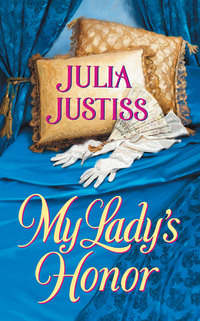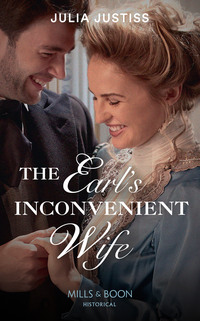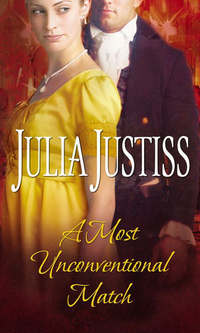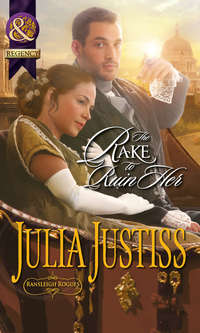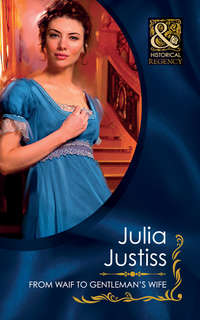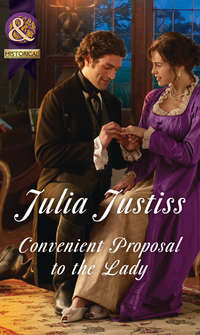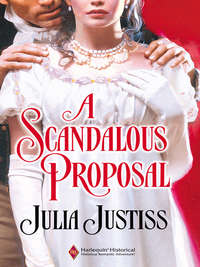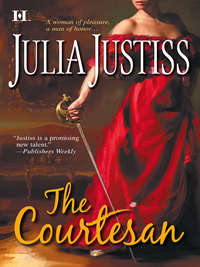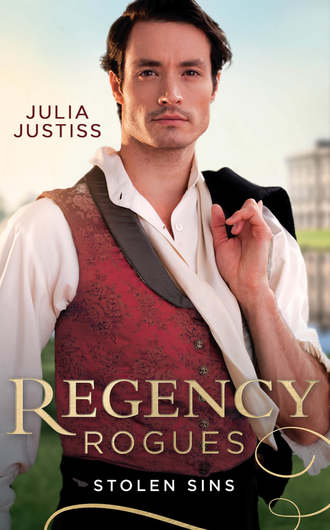
Полная версия
Regency Rogues: Stolen Sins: Forbidden Nights with the Viscount (Hadley's Hellions) / Stolen Encounters with the Duchess (Hadley's Hellions)
The larger looming question was, of course, the lady: what did he intend to do about Lady Margaret?
As impressed with her—and attracted to her—as he was, he was not at all interested in marriage. As Davie noted, he and the other Hellions were still junior enough not to need a wife’s connections to advance their political careers. And for reasons he’d never bothered to fully analyse, the very idea of marriage aroused some deep, nameless aversion.
Perhaps it was the disastrous aftermath of his parents’ union, or the lingering guilt he couldn’t shake at having inadvertently been the cause of that failure. Given his political aims and affiliations, as he’d informed her today, a union with him could do Lady Margaret no good whatsoever. And if anything happened to him before the current earl’s demise, his unfortunate wife would inherit only the enmity of a half-brother more than ready to step into his shoes.
Fortunately, one of the few benefits of being estranged from the earl was it allowed him to avoid the society in which Telbridge and his half-brother moved. If there were any scheming, marriage-minded females who took the long view, figuring that enticing into marriage a man of modest means now would pay off later when said husband inherited a wealthy earldom, they could hardly weave any webs to trap him when he never appeared at any of their social events.
He intended to enjoy his ambivalent position in his single, solitary state for a good deal longer. Although, he did chuckle to imagine the consternation it might create in Reform circles were he to turn up with a wife who had as strong a Tory pedigree as Lady Margaret.
He was powerfully attracted to the lady, and was reasonably certain she returned the compliment. A widow with her own property who was not dependent upon some relative for her support—and therefore not under their control—was exactly the sort of female he’d looked to in the past for the few affairs in which he’d indulged.
And Davie was right—it had been a long time since his last liaison, which had ended amicably when the lady in question decided she wanted to pursue remarriage. He’d kept busy with work since, and when the need for intimacy could no longer be denied, had a friendly arrangement with a discreet lady of the trade, who accommodated his desires with expertise and enthusiasm.
Might Lady Margaret be amenable to an affair?
Desire dried his mouth and tightened his body.
How he’d love to bury his fingers in her thicket of auburn hair, pulling the pins free until the heavy mass billowed down around her shoulders! Watch those green eyes darken with passion as he slowly disrobed her, fanning her desire higher and higher as he kissed and caressed the flesh as he bared it. He could imagine the feel of her breasts, heavy in his hands, the nipples tightening under his tongue. Then to proceed lower, over the silk of her belly, into the valley between her thighs, to the hidden centre of her desires…
He was throbbingly erect, just contemplating it. But he’d better douse those amorous thoughts before dinner. He’d hardly be able to hold his own against the enquiries that were likely to be fired at him by the Conservative diners with the velocity of volleys from a British square, if he spent the meal in a glassy-eyed haze of lust.
Besides, though he had no doubt Lady Margaret was attracted to him as well, being attracted and inviting him to an affair were rather large steps apart. For the time being—or until she sent him unmistakable verbal or non-verbal cues indicating such a leap interested her—he had better just focus on enjoying the lady’s conversation.
Taking a deep breath, he told himself to banish dreams of trysting and concentrate on politics.
To his surprise, it required an unusually strong application of will to do so, as his normally all-consuming passion suddenly seemed not so all-consuming.
But even with lust banished to simmer beneath the surface, his whole body still tingled with anticipation at meeting Lady Margaret again soon.
Chapter Six
Several hours later, Giles entered Lord Witlow’s town house in Russell Square. So this was where Lady Margaret had been raised, he thought, noting the Adamesque decor in muted tones, augmented here and there with Greek statuary and Oriental vases. Tasteful, classic and understated, like the lady.
He took the stairs with alacrity, telling himself the excitement coursing through him stemmed partly from anticipation of the spirited political debate he expected at dinner—and not just because of his strong desire to see his hostess again.
He found the anteroom occupied by a dozen or so guests, gathered in clusters, and already so absorbed in their discussions that they scarcely looked up as the butler intoned his name. He did not at first see Lady Margaret, though the simmering undercurrent of energy heightening his senses indicated that she must be present.
And then he spied her, walking over with her father to greet him, beautifully dressed in a gown of deep green that set off her eyes. Though he lamented the demise of the fashion for very low-cut dinner gowns, Giles noted, running an appreciative gaze over her figure, that the new lower-waisted style emphasised her slender form and accentuated the swell of that far-too-well-concealed bosom. As he raised his eyes to her face, she extended her hand.
He bowed over it, feeling a tremor vibrate through her fingers as he raised them to his lips. He had to fight to keep himself from letting his lips linger over the soft kidskin, while his nostrils filled with scent of violets. Concentrate on politics, he warned the senses that urged him to cut her from the group and whisk her away somewhere they might be private.
‘Father, I’m sure you remember Viscount Lyndlington—or Mr Hadley, as he prefers to be addressed. I was so impressed by his speech to the Commons, I took the liberty of adding him to our gathering.’
‘I heard from several sources about the eloquence of that address,’ the marquess said. ‘Let’s see if you can be equally eloquent in persuading some of my colleagues to your views tonight.’
‘I hope in turn to become better acquainted with your objections to it,’ Giles replied. ‘Knowledge and openness to altering opinions will be the only way compromise can happen.’
‘I shall look forward to the exchange,’ the marquess replied. ‘I believe you know most of the gentlemen?’ He waved a hand towards the rest of the room.
Giles forced himself to take his eyes from Lady Margaret, who was shyly smiling at him, and gaze around him. He’d been expecting a gathering of Tory lords, but the group was in fact much more varied. Beside several of the marquess’s associates from the Lords stood his good friend Lord Bathhurst and the irascible Baron Coopley, one of the most rigid Tories. But also present were the railroad man and inventor George Stephenson, several Tory MPs, and one of the Committee of Four whom Lord Grey had charged with drafting the Reform Bill, Sir James Graham.
This grouping should indeed provide for some interesting discussion, he thought, hopeful that prospect would make it easier to concentrate on politics—and ignore the allure of Lady Margaret, to whom his gaze kept returning, like a child’s toy pulled by a string.
Another guest was announced, and host and hostess moved on to welcome him. Giles watched Lady Margaret’s graceful sway of a walk as long as he thought he could get away with it without the raptness of his attention becoming notable, then made his way to the group which included Sir James.
‘Hadley!’ the Whig leader said in surprise as Giles joined them. ‘I didn’t know you were acquainted with the marquess. I’ll look forward to having a friend in my corner during the debate tonight. Though you’ll hear the variety of views Lord Witlow enjoys, I fear we shall still be outnumbered.’
Avoiding any comment about his connection to the marquess, Giles said, ‘How does Lord Grey think the lines will be drawn, once the bill comes out of committee?’
As he expected, it required only that question to launch Sir James and the two MPs standing with him into a spirited debate about how the legislation would progress, a discussion Giles would normally have followed avidly. Tonight, he listened with half an ear, surreptitiously trying to keep Lady Margaret in sight.
She was a good hostess, greeting each newcomer, sometimes allowing her father to direct the conversation, sometimes, with gentlemen who were obviously old family friends, giving the newcomer a hug or a kiss on the cheek.
Giles never thought he’d be jealous of venerable gentlemen from the older generation. At least, he told the impatient little voice within that clamoured to be near her, she wasn’t gifting her kisses to any man who looked virile enough to be his rival as a lover.
Startled to realise his interest in Lady Margaret had somehow progressed from admiration to evaluating other men as competition, he followed Sir James’s group in as the butler called them to table.
To his disappointment, he wasn’t seated near his hostess—the elderly Marquess of Berkley and Lord Coopley had that honour, as was proper for the two highest-ranking guests. He was surprised that he’d been seated adjacent to his host, a place that would normally have been reserved for a gentleman of higher status. Unless, he realised with a rueful grimace, one took into account his position as a courtesy viscount.
At first, conversation was general, with comments on the food and wine and an exchange of pleasantries and social news among the gentleman. Having nothing of interest to contribute, Giles listened politely, his glance straying to Lady Margaret at the other end of the table.
She was smiling at Lord Coopley—and what a lovely smile it was, he thought, those generous lips upturned and her eyes brightening. He liked what she’d done with her hair tonight, thick coils of auburn fire pinned atop her head, with little tendrils curling down to kiss her brow and earlobes—as he would love to. That luscious mouth, too.
‘…do you not think so, Hadley?’
Startled by the sound of his name, he jerked his head back to find the marquess regarding him, a slight smile on his face. Realising he’d not only been rudely inattentive to the host who’d done him the honour of seating him beside him, he’d also been caught staring at the man’s daughter, he gave himself a sharp mental rebuke, feeling his face heat.
If he were a parent worth the name, Lady Margaret’s father must already be curious about the link between them. The last thing he needed was to give the marquess a distaste of him by exhibiting the sort of ill-bred behaviour his half-brother always accused him of—or worse still, have Witlow suspect the strength of his amorous interest in Lady Margaret.
That subject concerned the two of them alone.
‘I’m sorry, my lord, I didn’t quite hear. Could you repeat the question?’
‘Certainly.’ A little twitch to his lips, as if he didn’t believe Giles’s excuse for an instant, but didn’t mean to call him on it, Witlow complied. This time, Giles listened closely, telling himself sternly for the remainder of the dinner to concentrate on his host.
Once the diners ventured into political matters, the conversation became stimulating enough to hold Giles’s attention, despite the ever-beckoning temptation of Lady Margaret seated at the other end of the table. Giles deferred to Sir James, letting the senior Member shoulder the burden of defending the Reform cause, adding a comment only when called upon. Not that he was afraid of speaking out, but it would be presumptuous for a junior member to put himself forward when Grey’s aide was present, an experienced man better known to this group than he.

Some time later, he heard Lord Coopley call his name. ‘So, Hadley,’ the baronet said in his gravelly voice, ‘your half-brother tells me you carry a torch for the Friends of the People?’
‘In a way,’ Giles replied. ‘Since Lord Grey himself formed the group, all of us who call ourselves Reformers are happy to carry on his ideals. Who could disagree with the notion that talent and virtue should be the chief requirements for a Member of Parliament?’
Apparently able to disagree, Lord Coopley sniffed. ‘Every male eighteen and older to have a vote? Parliaments to be elected annually? One member of Parliament for each twenty thousand citizens? Bah! How could the nation’s business be done, with Parliament forming and breaking up every season, and any Tom, Dick and Harry who could stagger to the polls after drinking a quart of election gin able to cast a vote? In private, no less, so one would never know where he stood! I suppose you sympathise with the Spencean Philanthropists, too, who would confiscate all our land and parcel it out, a few acres to every man, woman and child in the land?’
‘Did my half-brother tell you that, as well?’ Giles asked, irritated. Trust George to make him sound like the most rabid radical imaginable.
‘He did. You’re not going to call the Earl of Telbridge’s son a liar, are you?’
Much as he would like to, he knew it wouldn’t be prudent. ‘Certainly not. Though it’s true we agree on very little,’ he replied, trying to walk a cautious line between dismissing the charge as nonsense and agreeing he supported a position he didn’t.
Coopley uttered a bark of a laugh. ‘Distributing land to everyone! I’d like to see what a tailor or a baker or a bricklayer would do with ten acres of prime farmland!’
‘Or a Parliamentarian or lawyer?’ Giles replied with a smile. ‘I think we are all better off staying within our spheres of expertise. I’m sure Mr Stephenson would not like to have me conducting experiments on steam power, lest I blow him sky-high.’
As he’d hoped, the gentlemen laughed, easing the tension.
‘Lord Coopley, could I beg your assistance?’ Lady Margaret interposed, touching that gentleman’s arm. ‘Was it the Warrington Exetors who returned a Tory candidate for the last Parliament, or the Covington Exetors? Your memory for names is keen as a huntsman’s knife, and you know everyone who is anybody.’
‘Covington, my dear, Covington,’ Coopley said, patting her hand. ‘The family have been Tories since Peel’s administration.’ Either forgetting Giles or losing interest in baiting him, the older man launched into a detailed description of each administration in which an Exetor had served.
Giles risked catching Lady Margaret’s eye to give her a quick nod of thanks, to which she replied with a slight smile and a lift of her brows before turning back to her dinner partner.
A short time later, the footmen cleared the table, and Lady Margaret stood up. ‘Gentlemen, I’ll leave you to begin your more…lively debates. Thank you all for coming, and I’ll bid you goodnight. Papa, I’ll be reading in the library; come see me later, if the vigorous discourse you’re sure to enjoy after my departure doesn’t totally exhaust you.’
Giles watched her walk out with appreciative eyes. Initially disappointed that she did not even glance in his direction before she left the room, he brightened when he recalled her parting comment about repairing to the library.
Had that been aimed solely at her father…or could he flatter himself that she’d meant it partly for him, too?
At the idea of having her to himself for a few moments, excitement flared, and he immediately began scheming how he might politely get away without exciting comment.
Sir James was watching her, too. ‘She certainly rescued you deftly!’ the baronet murmured to Giles after she disappeared from view. ‘What a consummate hostess! I wish I had the like!’
‘Lady Graham is a very gracious hostess,’ Giles replied.
‘My Fanny does her best, but she doesn’t truly enjoy it,’ Sir James replied. ‘You need only look at Lady Margaret to see she thrives on discussion and debate. An excellent campaigner, too, which my Fanny most decidedly is not! The travelling, the dust, the crowds all exhaust her. There was talk a while back that Sir Francis Mowbrey might lure Lady Margaret away from her father to work her magic on his behalf, but in the end, it came to nothing.’
‘Sir Francis Mowbrey, the Tory MP from Suffolk?’ Giles asked, hoping he sounded like a politely interested guest—rather than like a man completely obsessed by the lady.
‘Yes, he wooed her some years ago, not long after she came out of mourning. Sir Francis was making a name for himself in Tory circles and had all the right qualifications: old landed family, educated at Eton and Cambridge, related to many of the peers in the Lords, not to mention the ladies found him charming. They were engaged, but just before they were to wed, Lady Margaret cried off. Sir Francis was quite public about his displeasure over the break; understandable, I suppose—it was a better match for him than for the lady, as he would gain access to her considerable fortune, as well as her Tory contacts and political expertise.’
Surprised, Giles said, ‘I wouldn’t have expected Lady Margaret to be a jilt. Or capriciously change her mind at the last minute.’
‘Well, let’s just say Sir Francis was better at wooing than he was at fidelity. He liked the ladies as much as they liked him, and though he was discreet about it, apparently continued his little amours even after the engagement. The on dit was that Lady Margaret got wind of it, and decided she didn’t want to become a wife who had to look the other way. Fair enough, I suppose.’
The man sounded like an arrogant jackass, Giles thought, though he made himself utter something appropriately banal. Better not to express his disgust, and risk alerting the baronet to the intensity of his interest in the lady.
But if Sir Francis had been foolish enough to lose the esteem of a woman of Lady Margaret’s stature by trysting with other females, he didn’t deserve her.
And if he’d led her on with declarations of love that turned out to be hollow, that might explain, Giles suddenly realised, why an eminently eligible female like Lady Margaret had chosen not to remarry.
Their attention was recalled by the marquess, who invited each guest to give his opinion on what would be the most important matter to be brought before Parliament in the current session. Mentally filing away what he’d just learned from Sir James, Giles returned his attention to matters political, biding his time until he could take his departure.

Finally, after an hour of intense debate came the lull that enabled him to make his escape. Pleading an early day working on committee reports, he expressed his appreciation to his host and took his leave. After enquiring of a footman where he might find the library, so he could bid his hostess goodnight, Giles walked in the direction indicated and towards the encounter he’d been anticipating all night.
The door to the library stood ajar. Intending to announce himself, he paused on the threshold, taking in the scene within.
Lady Margaret sat on a sofa near the fire, a full brace of candles on the table beside her, a slight smile on her face as she gazed down at the book she held. Light from the blazing hearth played in a teasing dance on her auburn hair, setting the burnished locks aglow and illumining her pale face with a blush of amber.
The sight of her, looking so solitary and yet so serene, struck his chest like a blow. In a rush of memory, he recalled how, after being put to bed, he’d sneak back to the small parlour in the little cottage he’d occupied with his mother, wanting another story or a goodnight kiss. He’d slip in to find her alone and reading, and think how beautiful she was. Long before he’d learned that they were poor, that they’d been cast off by his father, that she was living in exiled disgrace, he’d felt such a deep sense of peace and safety when she welcomed him with a hug before carrying him off to bed again.
Lady Margaret cast so similar an aura, for a moment he had the ridiculous feeling that he was coming home.
Before he could shake it off, as if that special energy that sizzled between them had alerted her to his presence, she looked up. ‘Mr Hadley!’ she exclaimed. ‘Is the group breaking up so soon?’
‘No, the rest of the gentlemen are still avidly engaged. I believe they’ll be there until the brandy gives out.’
She laughed softly, a musical sound that made him want to smile. ‘Since the supply is virtually inexhaustible, they should be there until dawn. But you need to leave?’
‘Well…’ He gave her a rueful grin. ‘To be honest, I must admit I made my excuses early…hoping to have a private word with you.’
Her smile widened. ‘And I was hoping you might slip away. Won’t you come in?’
A body blow from a skilled pugilist couldn’t have kept him from advancing towards her. ‘With pleasure.’
Chapter Seven
Looking up to find Mr Hadley standing on threshold, so discretion-meltingly handsome with his broad-shouldered form outlined by the darkness beyond and his face illumined by candlelight, she at first thought she’d longed for him so fiercely, she was only imagining his presence. Then he smiled, confirming he was no illusion, and her foolish heart leapt in gladness.
‘I’m so pleased you took my hint that I’d be in the library,’ she said, trying to slow her pulse as she waved him to a seat on the sofa beside her.
‘I’m so pleased you gave me the hint.’
Now that she’d got what she’d hoped for, she felt unaccountably shy. ‘Did you enjoy the discussions?’ she asked, feeling even more foolish for falling back on the prosaic, when she really wanted to ask him all about himself—his youth, his schooling, how he’d developed an interest in politics, what he wanted to achieve…whether he would reconcile with his father. Oh, she wanted to know everything about him!
He laughed. ‘The exchange did indeed become more “lively” after your departure! With Sir James to buttress my position, I flatter myself that I gave as good as I got, and managed to rattle a few firmly held opinions. Enough that I thought it prudent to depart and leave them to enjoy their brandy in peace.’
‘I thought you held your own admirably during dinner—and with great diplomacy. Especially with Lord Coopley.’ She sighed. ‘I’m afraid he can be quite dogmatic, but he’s been Papa’s mentor since he entered the Lords. He’d be so hurt if he learned Papa had hosted one of his “discussion evenings” and we had not invited him.’
‘I did rather feel like a Christian in the arena after the tigers were released. Thank you again for the rescue, by the way. Browbeating aside, I found it useful to hear all the arguments the Tories may summon; it will help my committee prepare the best responses to counter them. Because the Lords must pass the bill this session.’
‘Must?’ she echoed, puzzled. ‘Why “must” this time, when they’ve already failed several times before?’
‘Surely you observed the mood of the country when you went out to Chellingham! There’s even more agitation in the counties, especially in the northern industrial districts around Manchester, Liverpool and Leeds. Memories of the St Peter’s Field Massacre are still vivid. By failing to vote for reasonable change, the Lords could foment the very rioting and civil discord they think to avoid.’
Alarmed, she was going to ask him to elaborate when he held up a hand. ‘But enough politics for one evening! First, let me compliment you on a delicious dinner. After the bachelor fare I usually settle for, it was quite sumptuous! You really are, as Sir James asserted, the perfect hostess, providing for the needs of your guests, making sure everyone is included in the conversation, inserting a soothing comment here and there if the discussion gets heated—without the overheated gentleman ever noticing he’d been deflected. Quite masterful!’
‘Thank you,’ she said, flushing with pleasure at his praise. ‘I do enjoy it, especially “discussion evenings” such as this one, where there are a range of views exchanged. Alas, despite the best pamphleteering efforts of Anna Wheeler and William Thompson, I fear women will not get the vote soon. This gives me some way to contribute.’




